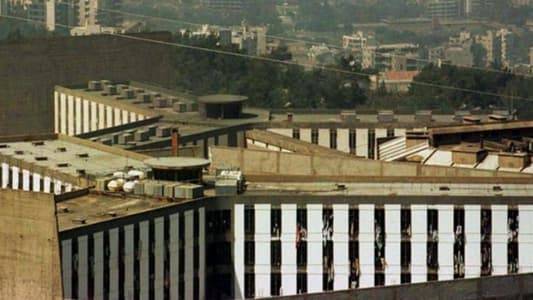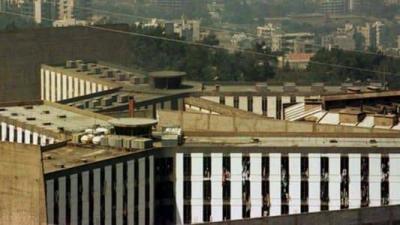The political, economic, financial, and judicial turmoil in Lebanon does not distinguish between residents in a country that has become akin to a large prison, characterized by a lack of justice and the erosion of its official institutions' ability to secure the basic rights and means for survival of its citizens. This has exacerbated issues for inmates in its overcrowded, small prisons that lack even the most basic international human rights standards. This situation has prompted rights activists to call for a concerted effort from official, local, and international bodies, to implement sustainable reforms for these prisons, which have been described as ticking time bombs, where fair trials remain denied to inmates, along with the necessary care, particularly health care.
The dire state of the prisons cannot be fully described in these lines, but the head of the "Nesruto - Brotherhood of Prisons in Lebanon" association, Father Marwan Ghanem, confirmed to "Voice of the Nation" that "Lebanese prisons experience an unnatural misery, particularly regarding healthcare, which falls on the shoulders of the prisoners and their families. They are, in turn, unable to provide the simplest elements of life for themselves before facing the burden of delivering assistance, medicines, and healthcare expenses to their relatives in prison." He pointed out that "the repercussions of judges' refusal to uphold justice, compounded by the strike of judicial assistants, have intensified the challenges faced by prisoners and prisons, which have reached peak overcrowding, while some prisoners have surpassed their maximum sentences without trial."
This has driven him to raise his voice and demand an end to the status quo amid the continuing collapse affecting all care institutions in Lebanon. He emphasized that resuming the work of the judiciary and issuing fair judgments against prisoners is a necessary entry point to address overcrowding and to secure the basic rights guaranteed by law for the remaining inmates, particularly concerning health care and food, and to take measures to curb the spread of epidemics.
Furthermore, he highlighted the logistical challenges facing security forces, which hinder the transportation of prisoners to courtrooms due to the dysfunction of the equipment used for this purpose and the absence of financial resources for maintenance. While noting that the difficulties faced by the Lebanese do not limit the momentum of the "association" nor its ongoing activities inside prisons since 1999, he clarified that their work focuses on rehabilitating individuals with alcohol and drug addictions, along with providing reform programs for inmates through the establishment and enhancement of the concept of restorative justice that allows participants to reduce their prison sentences.
Even though the lack of financial resources has negative repercussions on inmates, it also affects the security forces and their ability to guarantee security within some prisons. This has led one concerned individual in this matter to stress that the numerous living challenges faced by Lebanese citizens and security personnel in the large prison they inhabit exceed, by far, the suffering experienced by inmates in Lebanese prisons. The overcrowding of the 25 official prisons distributed across all provinces has turned some detention facilities into prisons, preventing the possibility of obtaining official numbers of detainees in Lebanese prisons, which are estimated to be around 8,000 according to those concerned with this issue. The central prison in Roumieh holds about 3,500 convicts and detainees, while its maximum capacity is estimated at 1,500 prisoners. Meanwhile, about 100 female prisoners share 36 beds in the prison designated for women in Baabda, with the remaining numbers distributed across other prisons and detention facilities.
Moreover, Cynthia Asmar, head of the Women's Empowerment Unit in the Lebanese Forces, has placed the issue of prisons at the top of her priorities, which includes a tangible assessment of the prison reality, starting from the women's prison in Baabda. While the catastrophic situation is a common denominator among all prisons, Asmar noted the high percentage of Lebanese female prisoners in Baabda, whose ages range from 19 to 35. She warned that the difficult economic conditions plaguing Lebanon could lead to an increase in lawlessness.
Regarding practical steps to address some of the numerous challenges faced by prisons, Asmar explained to "Voice of the Nation" that the Women's Empowerment Unit in the Lebanese Forces is about to announce these steps on the occasion of International Women's Day on March 8, in line with the Lebanese Forces’ project for building a strong state. This could begin with the launch of a humanitarian social project for female prisoners in Lebanon and the initiation of a draft law that, if approved, would enhance and guarantee human rights in all prisons and detention facilities across Lebanon.




